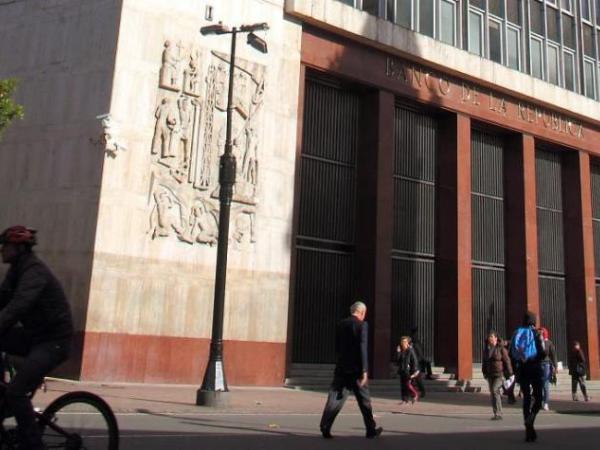The manager of Banco de la República, Leonardo Villar, spoke about the effects of the crisis between Russia and Ukrainehigh oil prices, independence of the IssuerPresident Iván Duque’s concern about the pace of rate increases and proposals for reform of candidate Gustavo Petro.
(Read: Tariffs on 165 imported goods are lowered to 0% to alleviate inflation).
How does the Russia-Ukraine crisis affect Colombia?
I would mention effects on four fronts. First, the conflictto uncertainty and volatility in international markets. Second, the impact of the conflict on the supply of cereals and agricultural inputs produced in that region can push up the prices of our imports. Third, the blockade of Russia decreases the supply of oil and increases the price, which is close to its highest historical levels, which constitutes a favorable effect for the Colombian economy. Fourth, capital flows to Colombia may be driven by the recomposition of investment fund portfolios that are forced to stop investing in Russia and are reallocated to other emerging economies, including Colombia. Taking into account that these four points act in different directions, it turns out difficult to predict the net impact on Colombia.
And how will the next rate hike affect?
The speed at which rates rise in Colombia it is defined with the latest information available at each moment in which decisions are made. It is premature to say anything about the possibility of the conflict affecting that speed. The effects of the Ukrainian crisis are important, but not fundamental to define the monetary policy response in Colombia, in which there are international factors that influence, but which depends to a greater degree on internal factors.
What do you think about what the President said that the rate hike could affect the recovery?
It is legitimate that there is concern about the impacts of the Bank’s decisions on interest rates, but the important thing is to explain the reasons that assist the Bank in the adjustment that has been coming since September and accelerated in January.
(What’s more: What consequences will the war in Ukraine have for the US economy?).
The economy has had a very favorable performance and the monetary expansion policy to help that recovery it can’t stay the way we had it until last september because we would run the risk of generating higher inflation and making it easier for the increase in prices, which has been caused in part by international factors but also by the dynamism of domestic demand, to become more persistent than is compatible with the Bank’s policy. and the established inflation targets.
Leonardo Villar, manager of the Bank of the Republic.
Paul Salgado
What we have seen in recent months is not only the increase in inflation of imported goods or of goods affected by imported inputs. The increases have begun to extend to core inflation and we see a decoupling in medium-term inflation expectations from the targets set by the Bank. For this reason, it is necessary to act with a less expansive policy so that the very satisfactory growth that we observe is sustainable and we do not see ourselves forced to adopt more restrictive policies in a few months.
It must be emphasized that inflation has perverse redistributive effects against people with lower incomes. What’s more, One of the major costs of an increase in expected future inflation is the increase in long-term interest rates. that would hurt government financing, investment, and housing demand.
(What’s more: Employment, inflation and fiscal stability: challenges for growth).
In this sense, when the Bank takes measures to combat inflation decisively, it also acts to guarantee equitable and sustainable growth. It is essential that the Bank act based on the mandate of the Constitution, which is to control the purchasing power of the currency.
There is more oil income but the rise in fuels generates inflation
The price of crude oil helps Colombia at a time when there is a deficit in the current account of the balance of payments. The growth of imports in 2021 was higher than that of exports. That deficit was 5.7% of GDP in 2021 and the rise in oil prices helps to moderate it, while contributing to government financing and fiscal adjustment.
BRIEFCASE
















